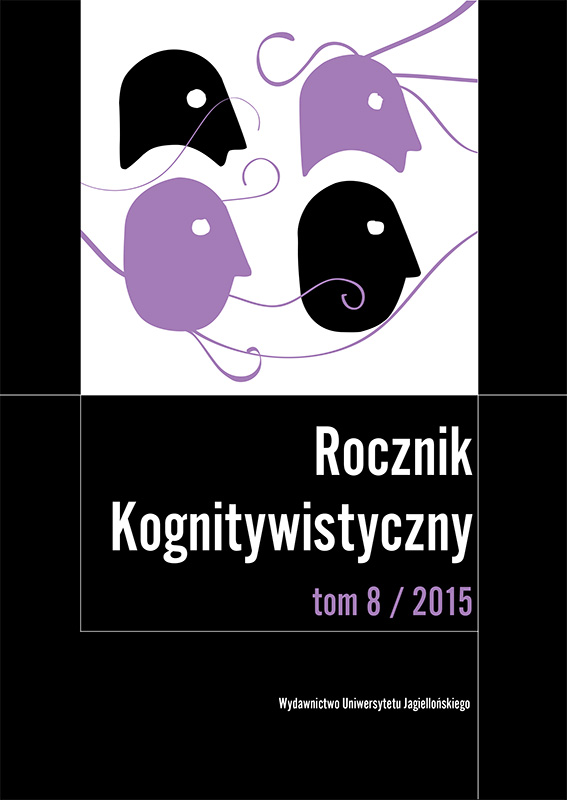The effect of multi-modal learning in Artificial Grammar Learning Task
The effect of multi-modal learning in Artificial Grammar Learning Task
Author(s): Katarzyna Rączy, Zuzanna Skóra, Maciej J. SzulSubject(s): Cognitive Psychology
Published by: Wydawnictwo Uniwersytetu Jagiellońskiego
Keywords: implicit learning; artificial grammar learning; multimodal learning
Summary/Abstract: The aim of the following study was to answer the question whether multimodal grammar learning would improve classification accuracy as compared with a unimodal learning. To test this hypothesis, an experimental procedure was constructed based on the research conducted by Conway and Christiansen [2006]. Their study regarded modality-specific Artificial Grammar Learning task (AGL). The grammatical sequence that was used in the study presented here was based on an algorithm with a finite number of results. Two additional sets of ungrammatical sequences were generated in a random manner. One of them was used in the learning phase in the control group while the second one, in the classification phase, in both, control and experimental groups. The obtained results showed that participants performed classification task above the chance level. These findings supported the hypothesis, which stated that grammar learning would occur [Conway and Christiansen 2006; Reber 1989]. We did not observe any effect regarding the hypothesized accuracy enhancement in a multimodal learning condition.
Journal: Rocznik Kognitywistyczny
- Issue Year: 2015
- Issue No: 8
- Page Range: 91-98
- Page Count: 8
- Language: English

